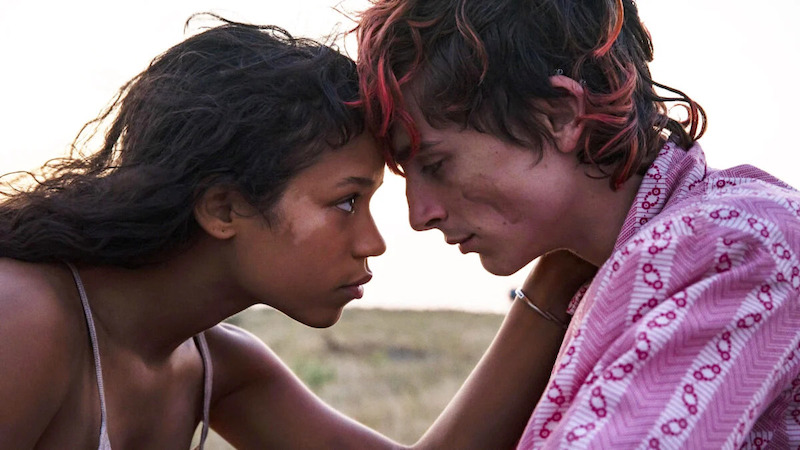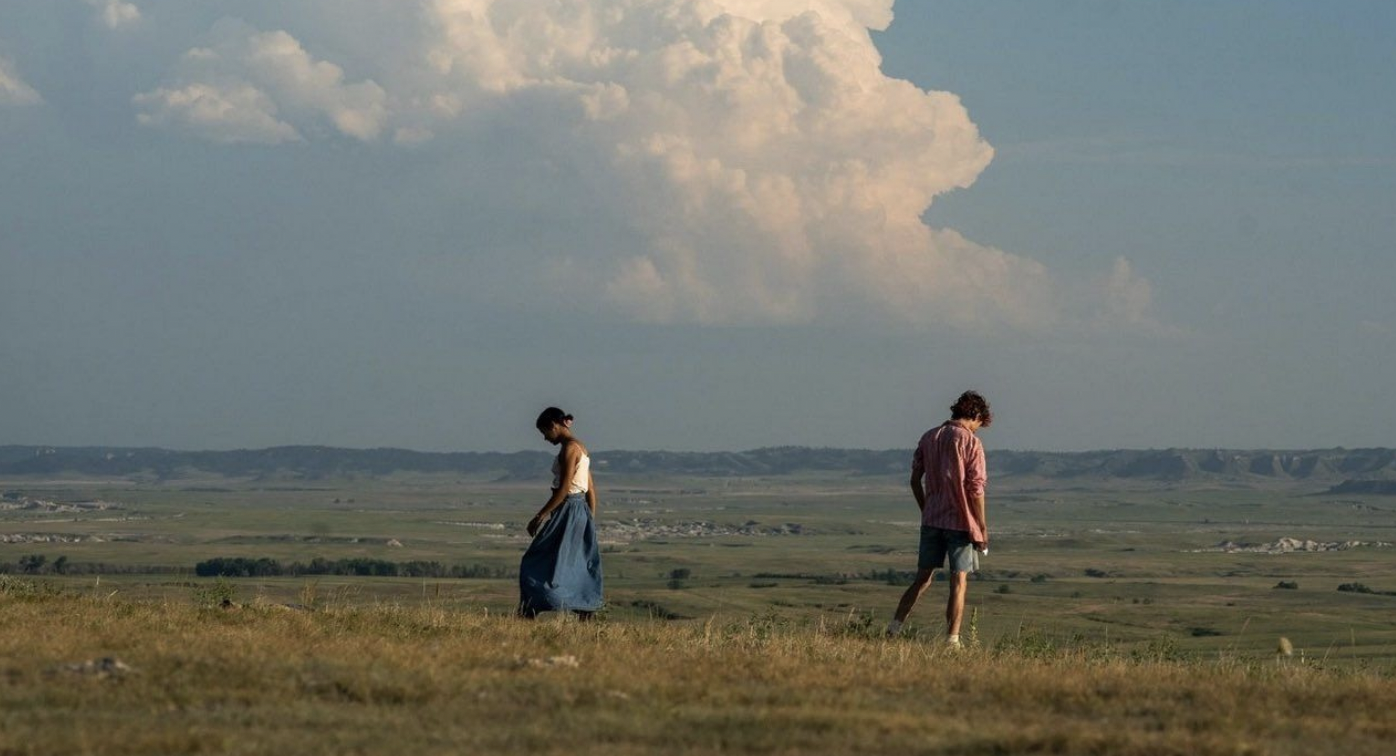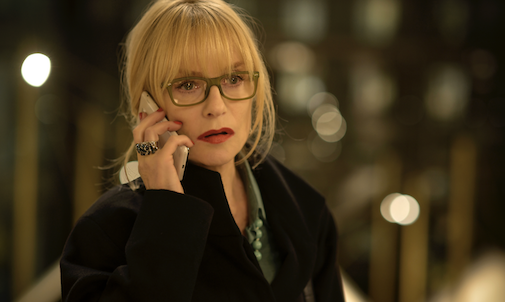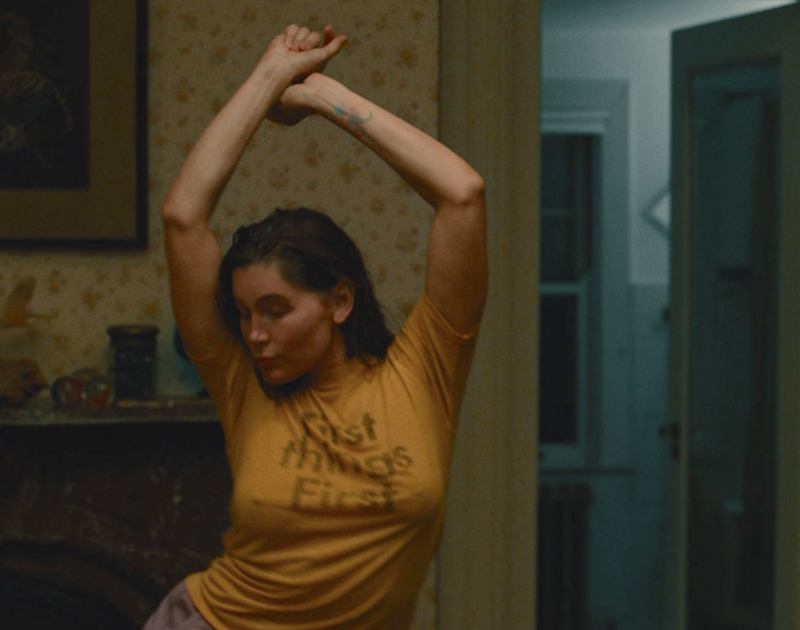by Elisa Giudici
 BONES AND ALL
BONES AND ALL
The women in the four movies screened today are truly formidable. They're capable of eating their enemies alive -- one quite literally as in Guadagnino’s latest Bones and all. Two more are fighting conventional portraits of females as weak. The last is living an extraordinary life and using her power as an artist to expose rich capitalist shenanigans. What a quartet...
BONES AND ALL by Luca Guadagnino
I could easily describe myself as a Guadagnino stan. I just love his cinema and find even the small shortcomings amusing. The point is, I'm predisposed to like his pictures. If you've heard anything about Bones and All before now, you've probably heard it described as a cannibal movie. This is a trap. Yes, the cannibalistic elements grab immediate attention. There are scenes involving eating human flesh but they are not that extreme or fetishized.

Bones and all is way more interesting to think of as the dark side of Call Me By Your Name. It's set in the same year but in the American midwest. Still, it's about as far as possible from the joy and hopeful feeling usually attached to 1980s movies. This road trip through the US is a journey through empty, anonymous places, sometimes filled with a pervasive feeling of danger. Cannibalism is a projection of the monstrous loneliness experienced by the two young protagonists (Taylor Russell and Timothée Chalamet); they're seeking a real connection with another human, someone who can accept even the unspeakable act they sometimes perform by necessity.
If you go in expecting a YA dystopia with horror vibes, you'll be surprised. That is a fitting description, to an extent, but it doesn't convey the depths the movie reaches in its best moments. While it might not prove a major title in Guadagnino’s growing career, it shows a new level of maturity as a filmmaker that can't be missed. (Look out for a cameo from David Gordon Green, director and producer of the new Halloween trilogy. Guadagnino said they became friends during the Torino Film Festival when they were both on the jury and he's wanted to put the director in one of his movies as an actor since Suspiria.)

LE SYNDICALISTE by Jean-Paul Salomé
Like Todd Field with Cate Blanchett in Tár, writer/director Jean-Paul Salomé should thank his lucky stars to have Isabelle Huppert as his muse. Though I haven’t seen their previous collaboration Mama Weed, after Le Syndacaliste I want to. Salomé has a deep understanding of how to show off Huppert in the best possible light. Which kind of roles does she handle best? Well, those involving a violence, emotional or otherwise, either suffered by her or inflicted upon others as well as the peculiar but human reactions to pain from her uncompromising characters.
Le Syndacaliste starts quite similarly to the superb Elle by Paul Verhoeven. Huppert plays a woman who is raped. Then she reacts in a very unexpected, upsetting way. While Jean-Paul Salomé is no Paul Verhoeven, Isabelle Huppert (even with a blonde wig) is still Isabelle Huppert; she delivers like no one else. And considering that this is based on a true story of a French union representative whose rape was not believed because her reactions did not fit fall in line with a “good victim”, Le Syndacaliste is, in its way, more chilling than Verhoeven’s fictitious story.

MONICA by Andrea Pallaoro
During her transition, a trans woman named Monica (Trace Lysette) visits her sick mother. While confronting her fractured family with her changed appearance, her ill mother is unable to recognize her. After a tedious opening that gives us too little about the titular character, Monica improves, delivering a sensitive portrayal of a person in a very difficult moment of life, trying to renovate old family relationships while saying goodbye to others. Lysette is gorgeous throughout and willing to put her body on the line to show the truthness of the character.
As a movie, Monica is not an incredible discovery, but the partial novelty of its approach, the authenticity of Lysette's performance, and the queer discourse at the center of a delicate family drama goes a long way. It's easy to see it getting some recognition from the jury. In fact, if it weren't for Cate Blanchett's towering performance in Tár, I would assume that Lysette was a major contender for the Volpi Cup.

ALL THE BEAUTY AND THE BLOODSHED by Laura Poitras
The only documentary contending for the Golden Lion this year deserves its spot in the competition lineup. The feature is presented as the story of world-famous photographer Nan Golding taking on Purdue Pharma, owned by the Sackler family (also the villains of the Emmy contender Dopesick). Purdue commercialized OxyContin, the pain killer responsible for the ongoing opioid crisis. The fight Golding took to one of the most powerful families on the planet surely deserves a documentary, but All the Beauty and the Bloodshed is better than just centering a worthwhile story. The film also proves to be a moving biographical portrait of the troublesome, vivid, unconventional life Nan lived from her dramatic childhood onward. And that's not all. Goldin's years in New York City and her intimacy witht he queens she photographed and befriended also make All the Beauty and the Bloodshed a valuable account of the ueer community and underground art scene of the 1970s.
While Poitras arguably struggles to give us a comprehensive account, she's conveying quite a lot. The doc frames Nan Goldin as a true multi-faceted icon: as a photographer, as a strong-willed woman, as a humanitarian, and as a human being who suffered terrible losses throughout her difficult life.
more tomorrow
Previously
Diary #1 - Tár and White Noise
Diary #2 - Bardo False Chronicle of...